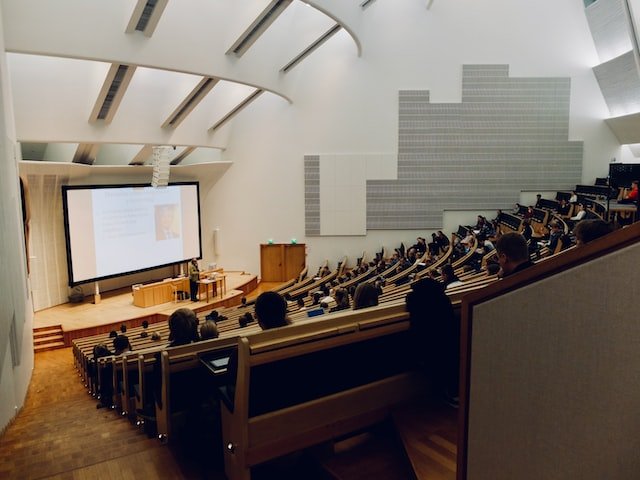Midiri: “We feel the weight of suffocating expectations that do not take into account the human need to proceed in one’s own time, in one’s own ways.”
“With a student population of 50,000 it is a bit complex to nip in the bud the signs of discomfort, but the University is in the field.” Massimo Midiri, rector of the University of Palermo, does not hide the problem. From one end of Italy to the other, cases of suicide among university students have multiplied in recent years. “We feel the weight of suffocating expectations that do not take into account the human need to proceed in one’s own time, in one’s own ways,” Emma Ruzzon, student representative, said Monday during the opening ceremony of the 801st academic year at the University of Padua.
Suicides multiplied
Last month in Palermo, an economics student took his own life. He was a few subjects away from finishing his degree. On February 1, a 19-year-old student was found dead in the bathroom of the Iulm University she was attending, in Milan. Increasingly fragile young people, crushed by the weight of expectations and increasingly extreme competition. A malaise that, according to the rector of Palermo, has been exacerbated since the pandemic. “I have the distinct feeling that the post Covid has worsened a condition of fragility that statistically has always existed. The transition from school to university took place without a mechanism for sharing even the distress. The beginning of a new phase of their lives, due to pandemic-related restrictions, was not shared with a class but mediated by a computer.” Isolated and alone with a screen as their only interface. “There was no socialization, which in some cases is compensatory. This has created a worsening of discomfort.”
More listening points
To address the growing malaise Unipa has increased its listening points. “We have enhanced the psychological approach and I plan to recruit two more psychologists soon,” Midiri explains. At present, the Psychological Counseling service, available on the Cot premises, can count on four psychologists who receive by appointment Monday through Friday (091.23865500, email: counsellingpsicologico.cot@unipa.it). “Theirs is a very intense activity, and I am starting other pathways for the prevention of distress such as the anti-violence desk with qualified staff able to collect reports from our young people and intervene promptly.”
“That of listening is a real problem and very much felt by the boys, who often do not have points of reference,” the rector stressed, explaining that in the university medical clinic, set up in the citadel on Viale delle Scienze and where free examinations are offered to boys, “we will set up another psychological listening center.”
An effective right to study
There remains, however, the cry for help raised by Palermo students who, after their colleague’s suicide, placed a banner near the Economics department. “One cannot die of university. Against a merit that kills us,” it read. “Young people know today that if you don’t have numbers you can present, starting with your graduation grade, entering the job market is increasingly difficult,” Midiri admits. “University success, however, depends not only on their commitment but also on the way they can approach their path. That is why the task of the institutions is to guarantee an effective right to study.” Which translates into the possibility of scholarships, being able to attend classes or having, if out-of-town, the possibility of housing in which to live with dignity. “In a socioeconomic context like ours, the number of applications is four times higher than the number of scholarships put up for competition,” the rector emphasizes. There is a problem with the right to study that needs to be addressed: politics must find the resources so that this right is guaranteed to all, truly translating the concept of equal opportunity into reality. Our country will only be able to stop being the Cinderella of Europe in terms of higher education through merit. We must be competitive, we must, on the one hand, ensure the right to study for all and, on the other hand, encourage paths of excellence within the university.” In Palermo, two-thirds of those enrolled do not pay tuition fees. “This is a concrete possibility of a social elevator,” Midiri concludes. “Now we also need to invest in university residences to allow students to have a safe place to live and study for free or at a very low cost.

